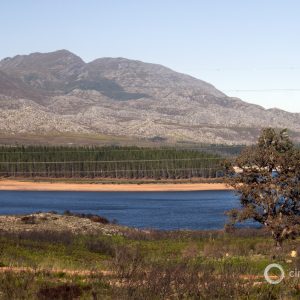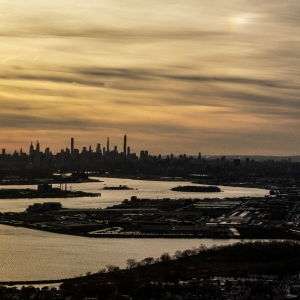The Stream, October 26, 2021: Oil and Gas Developers in California Have Been Contaminating Groundwater With Little Oversight, Study Finds
YOUR GLOBAL RUNDOWN
- Urban planning experts in the Indian city of Bengaluru are calling on officials to overhaul the city’s stormwater drainage system.
- Recent research reveals California’s failure to regulate groundwater contamination from the oil and gas industry.
- A water bottling plant in West Michigan announces plan to decrease water withdraws.
- Thailand will push a controversial water diversion plan forward after receiving funding from an unnamed Chinese firm.
Lake Powell levels will continue to plummet, according to the latest projections from the U.S. Bureau of Reclamation.
“We have had to make difficult choices this year, and we will have to make more difficult decisions if it continues to remain dry next year to protect Lake Mead and Lake Powell.” – The Bureau of Reclamation’s Lower Colorado Basin Regional Director Jacklynn Gould. The latest results of the Bureau of Reclamation’s 24-month study predicts that water levels on Lake Powell could drop below 3,490 feet by July of next year. CBS Denver reports that the predictions put Lake Powell’s levels below the “power pool” mark, which threatens the Glen Canyon Dam’s hydropower turbines.
- Why it matters: This is not the first time the Bureau of Reclamation’s study, which projects water levels two years into the future at 12 federal reservoirs in the Colorado River Basin, has received national attention this year. In August, the study’s results triggered the first-ever Tier 1 shortage on the Colorado River, a declaration that means mandatory cuts in water deliveries in 2022 to Arizona, Nevada, and Mexico. Experts warn, however, that the Reclamation’s models should not be seen a s crystal ball. More eyes than usual on the study leaves more room for misinterpretation, Circle of Blue reported earlier this year. Some critics say that the models aren’t pessimistic enough, and that the public and water managers should prepare for the possibility that reality could turn out much worse.
IN RECENT WATER NEWS
In Case You Missed It:
What’s Up With Water – October 25, 2021 – This week’s episode covers an effort to save a threatened species of salmon in California, heavy rains across India’s Himalaya region, and South Africa’s plan to remove invasive pine trees and preserve vital watersheds.
HotSpots H2O: Flooding Is Latest Strain on South Sudan – Torrential rainfall is battering one of the world’s poorest countries, laying bare its weak infrastructure.
Bengaluru Experts Call For Drainage System Overhaul Amid Flooding
Amid devastating flooding in the Indian city of Bengaluru, the Hindustan Times reports that experts are calling for fundamental changes to the city’s storm water drainage system. As residential neighborhoods expanded, experts – including the state’s chief minister Basavaraj Bommai – say city planners failed to adequately protect low-lying areas from flooding. In response to the recent flooding, Bengaluru city officials announced a plan to establish the city’s major drain as a waterway and ecological corridor. Authorities say the project could be completed in the next 10 months.
TODAY’S TOP WATER STORIES, TOLD IN NUMBERS
16 BILLION BARRELS
New research has revealed California’s failure to regulate its multi-billion-dollar oil and gas industry has allowed developers to release more than 16 billion barrels of produced water into unlined earthen disposal “ponds,” releasing high concentrations of contaminants into groundwater. Millions of residents rely on wells that draw on groundwater, according to Inside Climate News. While California law protects groundwater from contamination by operations like hydraulic fracturing, it does not prevent developers that use methods like steam injection from dumping wastewater into open pits, and has largely failed to monitor the practice.
288 GALLONS
Earlier this year, the previous owner of the Ice Mountain bottled water plant received state approval to pump 400 gallons a minute from a well near Evart, Michigan. Now, the Associated Press reports that BlueTriton Brands, the new owner of the plant, will only pump 288 gallons a minute from the well. Although critics of the plant’s operations say they are pleased that BlueTriton has welcomed a different pumping strategy, advocacy groups like the Michigan Citizens for Water Conservation say the company would still be withdrawing more than the current 250-gallon-a-minute threshold, which has already impacted stream and creek levels in the region.
ON THE RADAR
Thailand will move forward with a controversial water diversion project on the Yuam River, Voice of America reports. The country’s National Environment Board approved a crucial environmental impact assessment in September after local news reports surfaced that an unnamed Chinese firm was offering to build the project for just over half the original price tag and in only four years instead of the estimated seven. Advocacy groups have long-opposed the project for fears that the new reservoir would displace nearby villages and destroy stretches of protected forest.
Jane is a Communications Associate for Circle of Blue. She writes The Stream and has covered domestic and international water issues for Circle of Blue. She is a recent graduate of Grand Valley State University, where she studied Multimedia Journalism and Women, Gender and Sexuality Studies. During her time at Grand Valley, she was the host of the Community Service Learning Center podcast Be the Change. Currently based in Grand Rapids, Michigan, Jane enjoys listening to music, reading and spending time outdoors.







Leave a Reply
Want to join the discussion?Feel free to contribute!